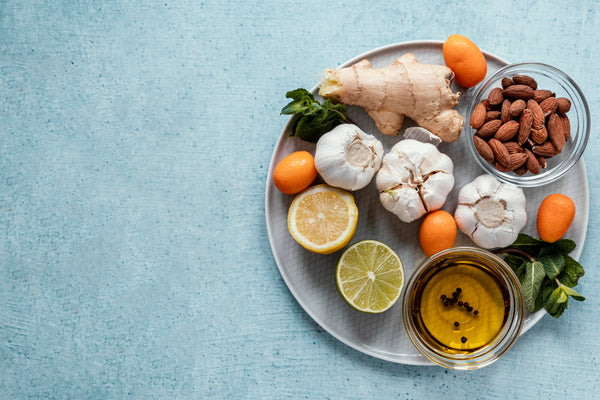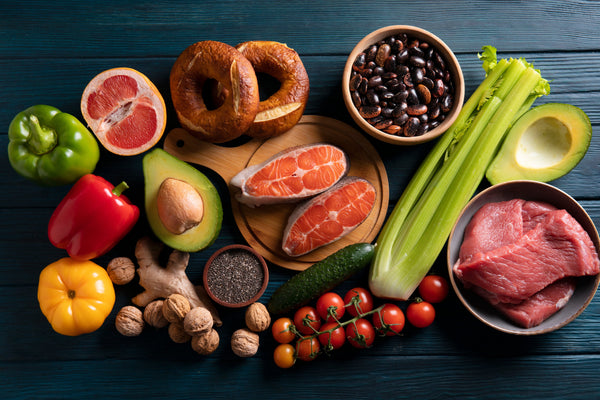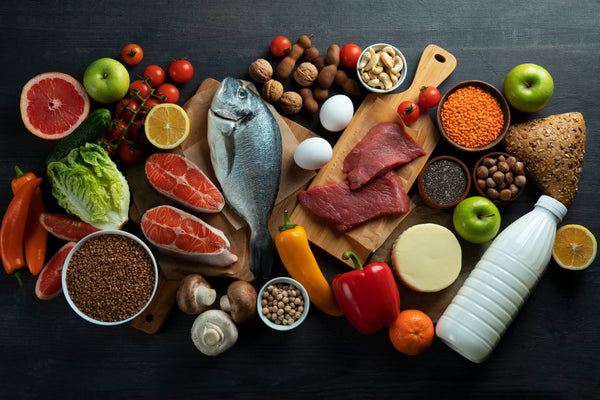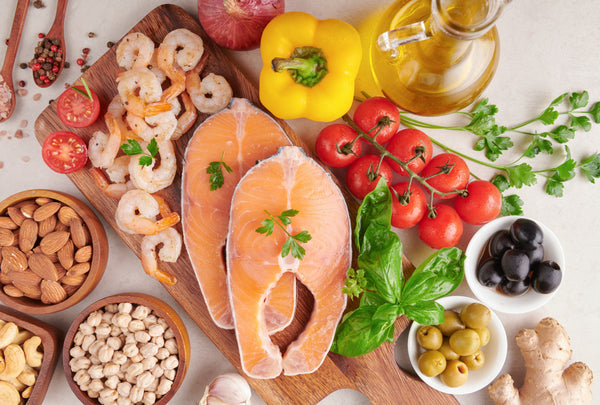Paneer vs Soya Chunks: Which is the Best Source of Vegetarian Protein?
Protein is an essential nutrient that supports muscle growth, boosts energy, and helps maintain overall health. Whether you're aiming to build strength, enhance recovery, or simply enjoy a nutritious meal, choosing the right protein sources is key to maximizing your health benefits. Two popular vegetarian options are paneer and soya chunks—both are rich in protein and offer a range of health advantages. However, with so many options to choose from, it can be tough to decide which one is the better fit for your diet.
In this blog, we’ll dive into a comparison of these two plant-based protein powerhouses, examining their nutritional benefits, versatility in the kitchen, and how they measure up to each other. Whether you're looking to increase your protein intake, manage your weight, or support muscle growth, selecting the right protein source is crucial. Let’s take a closer look at paneer and soya chunks to help you determine the best option for your plate.
Protein Quality
The quality of protein plays a vital role in determining the nutritional value of any food. While both paneer and soya chunks are excellent sources of protein, their amino acid profiles reveal a key difference that can impact your dietary choices.
Paneer, a dairy product, contains all nine essential amino acids, making it a complete protein source. This is a major advantage for vegetarians, as it provides all the necessary building blocks that the body can’t produce on its own. The amino acids found in paneer support tissue repair, muscle growth, and enzyme production, making it an ideal post-workout food to help the body recover and rebuild.
Soya chunks, on the other hand, also offer a complete protein profile. Soy protein stands out as one of the few plant-based proteins that delivers all the essential amino acids required by the body. This makes soya chunks an excellent option for vegans, as it is one of the rare plant foods that can match the protein quality of animal-based products.
Nutritional Benefits
When you think of protein, you might focus on the muscle-building benefits, but protein also supports a multitude of bodily functions. That’s where the additional nutrients in paneer and soya chunks come into play.
Paneer is not only rich in protein but also provides a healthy dose of calcium, which is essential for strong bones and teeth. It’s also high in vitamin B12, which is critical for energy production and brain function. Additionally, paneer contains healthy fats that contribute to cardiovascular health when consumed in moderation.
Soya chunks, on the other hand, are rich in fiber and iron, which are often lacking in vegetarian diets. The high fiber content of soya chunks supports digestive health and helps maintain a healthy weight. They also contain phytoestrogens, plant compounds that can help regulate hormone levels in the body. Soya chunks are also a good source of omega-3 fatty acids, which support heart health.
Digestion and Health Considerations
While both paneer and soya chunks are packed with nutrients, they each come with their own considerations when it comes to digestion.
Paneer is a dairy product, so for individuals who are lactose intolerant or sensitive to dairy, it may cause bloating, gas, or other digestive discomforts. However, paneer is often easier to digest than other dairy products, as the fermentation process helps break down lactose to some extent.
Soya chunks are plant-based, making them an excellent choice for those with dairy sensitivities. However, some people may find them difficult to digest if not prepared properly. Soya chunks require thorough cooking and rehydration to make them more digestible. Consuming excessive amounts of soy products might also interfere with thyroid function in some individuals, so moderation is key.
Taste and Versatility
When it comes to taste, the choice between paneer and soya chunks often comes down to personal preference. Paneer has a soft, creamy texture with a subtle flavor that absorbs spices and marinades beautifully. It’s perfect for dishes like paneer tikka, curries, and even wraps.
Soya chunks, on the other hand, have a meat-like texture and can mimic the consistency of chicken or beef when cooked properly. They are excellent in dishes like soya biryani, stir-fries, and soups, offering a hearty and satisfying meal. The versatility of soya chunks makes them an ideal substitute for non-vegetarian dishes, especially for those following a vegan or vegetarian lifestyle.
Paneer vs Soya Chunks: Which One Should You Choose?
The decision between paneer and soya chunks ultimately depends on your dietary preferences, health goals, and any dietary restrictions you might have.
-
If you’re looking for a complete protein with the added benefits of calcium and vitamin B12, paneer is an excellent option—especially for those who include dairy in their diet.
-
If you’re seeking a plant-based protein that is rich in fiber, iron, and omega-3 fatty acids, soya chunks are a fantastic choice, particularly for vegans and those avoiding dairy.
Both options provide substantial nutritional benefits, and incorporating both into a balanced diet can give you the best of both worlds. If you prefer a more plant-based diet, soya chunks offer the versatility of meat alternatives, while paneer provides a creamy texture and essential nutrients for those who can consume dairy.
Ultimately, whether you choose paneer or soya chunks, the key is to ensure you’re getting a quality source of protein that aligns with your dietary preferences. For those seeking high-quality vegetarian protein with a rich amino acid profile, it’s important to choose options that not only taste good but also contribute to your overall health and well-being.
By selecting nutrient-dense protein sources and pairing them with a well-rounded diet, you can ensure that your body is getting everything it needs to thrive.

























